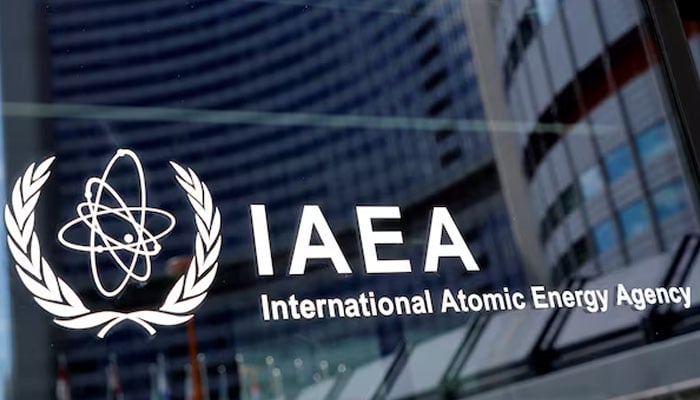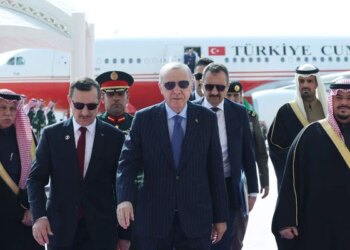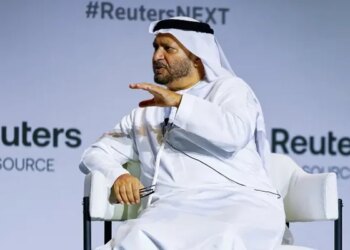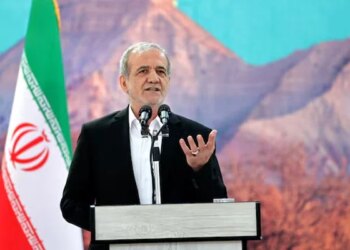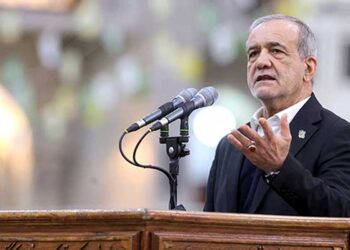Select Language:
- Iran is currently evaluating the timing and conditions before entering talks.
- Future discussions will be strictly focused on the nuclear program: FM Araghchi
- “The reinstatement of UN sanctions could marginalize Europe in the Iranian nuclear issue.”
On Saturday, Iran indicated that its collaboration with the International Atomic Energy Agency (IAEA) is set to change, showing an interest in finding a diplomatic resolution to the concerns surrounding its nuclear program.
Last month, a 12-day conflict erupted between Iran and Israel, triggered by an Israeli bombing campaign targeting military, nuclear sites, and civilian areas, further straining Iran’s already tense relationship with the UN nuclear watchdog.
The bombings occurred just days before a planned meeting between Tehran and Washington aimed at revitalizing stalled nuclear negotiations.
Iran’s Foreign Minister, Abbas Araghchi, stated on Saturday that while Iranian cooperation with the IAEA has not ceased, it will enter “a new form” following the Islamic Republic’s decision to halt formal cooperation with the UN agency in early July.
Tehran has partially held the IAEA accountable for the June attacks on its nuclear facilities, which Israel conducted to impede Iran’s potential development of nuclear weapons—a claim that Tehran has consistently denied.
As part of ongoing negotiations, the United States, which had been in discussions with Iran since April 12th, carried out strikes on Iranian nuclear sites at Fordo, Isfahan, and Natanz on June 22nd.
Araghchi remarked that requests to monitor nuclear sites “will be evaluated on a case-by-case basis, considering safety and security,” and would be managed by Iran’s Supreme National Security Council.
Seeking Assurances
A group of IAEA inspectors departed Iran for the organization’s headquarters in Vienna earlier in July after Tehran halted collaboration.
The discussions aimed to regulate Iran’s nuclear activities in exchange for the lifting of economic sanctions.
Before any new meeting occurs, “we are assessing its timing, location, format, content, and the guarantees required,” noted Araghchi, who also serves as Iran’s chief negotiator.
He stated that any negotiations would focus solely on Iran’s nuclear efforts, excluding its military capabilities.
“Should talks be conducted, the sole topic will be nuclear matters and building confidence in Iran’s nuclear program in exchange for lifting sanctions,” he conveyed to diplomats in Tehran. “No other topics will be open for discussion.”
Araghchi also cautioned that reimposing UN sanctions could eliminate Europe’s role in the negotiations.
On Enrichment
“Such actions would mark the end of Europe’s involvement in the Iranian nuclear discussions,” he emphasized.
A clause in the 2015 nuclear accord allows for the reinstatement of UN sanctions if Iran is found to be in violation of the agreement, from which former President Donald Trump withdrew the U.S.
Araghchi underscored that any new nuclear arrangement must acknowledge Iran’s right under the Non-Proliferation Treaty to enrich uranium for peaceful purposes.
“I want to stress that in any negotiated resolution, the rights of the Iranian people regarding the nuclear issue, including the right to enrichment, must be honored,” he asserted. “We will not accept any agreement that excludes enrichment.”
At the BRICS summit in Rio on Monday, Russian Foreign Minister Sergei Lavrov expressed Moscow’s steadfast support for Iran and its nuclear endeavors, stating, “Russia possesses technological solutions for uranium enrichment and is ready to collaborate with Iran in this area,” according to Russian state news outlet TASS.

